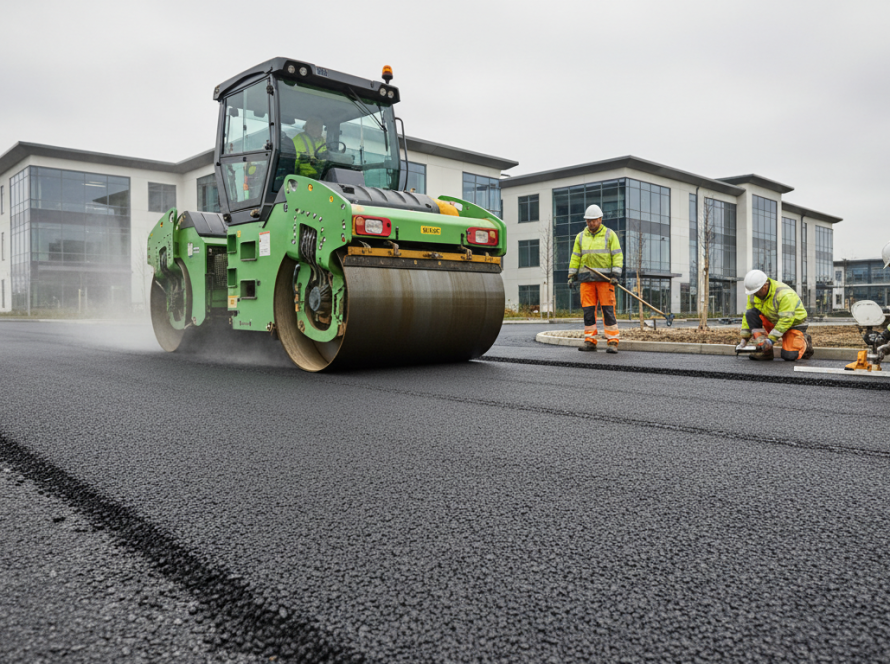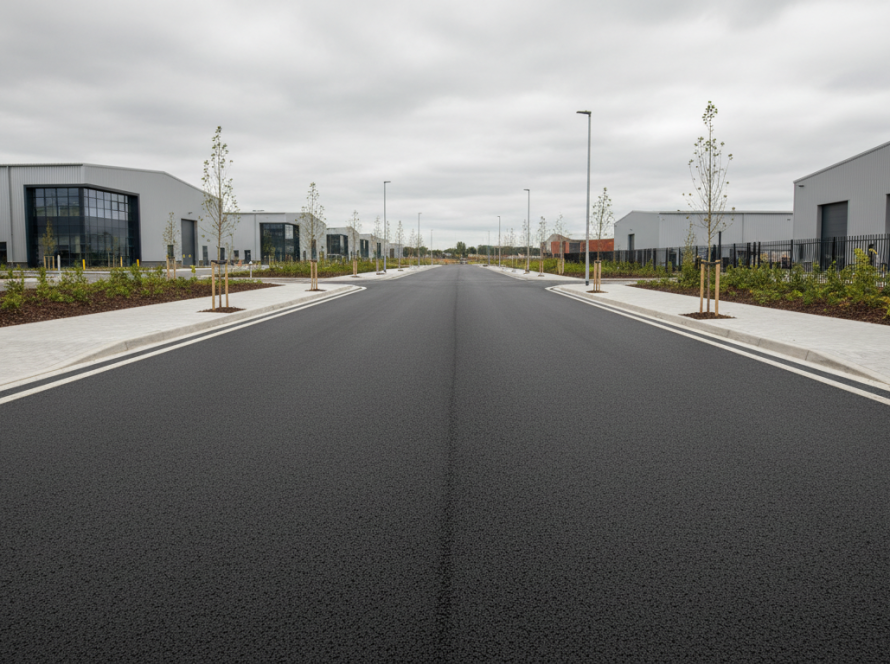Choosing between tarmac and resin for a new driveway can be challenging for homeowners. Both materials have strong advantages, but they perform differently in terms of durability, appearance, drainage, cost and long-term value. Understanding these differences makes it easier to select a surface that suits both the property and lifestyle needs.
This guide breaks down the seven points that matter most when comparing tarmac and resin.
1. Durability and Structural Strength
Tarmac has long been known for its toughness. When laid correctly with a strong sub-base, it handles heavy loads well and is ideal for properties with multiple vehicles or frequent parking. Resin-bound surfaces also offer durability, especially when using high-quality aggregates and UV-stable binders, but they are better suited for residential use rather than heavy commercial traffic.
As a rule, tarmac is the more robust choice for driveways with high daily stress, while resin offers a strong yet slightly more delicate performance best suited to standard household requirements.
2. Appearance and Kerb Appeal
Resin has a clear advantage when it comes to design. It provides a smooth, premium finish and comes in a wide range of colours and natural stone blends. This makes it easy to complement modern or traditional home styles.
Tarmac has a classic and uniform look but lacks the decorative variation that resin offers. For homeowners prioritising appearance and a high-end finish, resin is usually the preferred option.
3. Drainage and SuDS Compliance
One of the main reasons resin driveways have become popular is their permeability. Resin-bound surfaces allow water to pass through, making them compliant with Sustainable Drainage Systems (SuDS) when installed over the correct base. This reduces surface water, prevents pooling and helps manage heavy rainfall.
Tarmac, unless specifically designed with permeable layers, is not naturally porous. This means it may require additional drainage channels or planning approval in certain cases.
4. Installation Time and Disruption
Both materials offer relatively quick installation. Tarmac can be laid swiftly and is often ready for use within a short time once cooled. Resin installations usually take a little longer due to the precise mixing and curing process, but most residential projects are completed within one to two days.
In both cases, choosing skilled installers is essential to ensure the surface cures properly and achieves long-term performance.
5. Maintenance Requirements
Tarmac requires low but occasional maintenance. Over time, the surface may need resealing to restore its colour and protect it from weathering. Extreme heat can soften the surface temporarily, although this is less of an issue with modern materials.
Resin is also low maintenance. Regular sweeping and occasional jet washing are typically enough to keep it looking fresh. There are no joints for weeds to grow through, and the colour remains stable when UV-resistant resin is used.
6. Cost and Long-Term Value
Tarmac is generally the more affordable option at the installation stage. It provides a strong and reliable surface without a high upfront cost. Resin is typically priced higher due to its decorative finish and the quality of materials required.
However, resin can offer better long-term visual appeal and may add more kerb appeal value to a property. The choice between cost and premium appearance depends on the homeowner’s priorities.
7. Which Surface Lasts Longer?
Both tarmac and resin can last many years when installed properly. Tarmac may have a slight advantage in lifespan under heavy use, while resin performs exceptionally well in residential settings when maintained correctly.
The longest-lasting results come from high-quality materials and professional installation rather than the surface type alone.
Making the Right Choice for Your Home
For homeowners seeking a cost-effective, strong and practical solution, tarmac is a dependable choice. For those wanting a modern, decorative surface with excellent drainage and customisation, resin is the preferred option.
Whichever option you choose, working with experienced professionals ensures your driveway is built to last. Total Surfacing provides expert installations in both tarmac and resin systems, supported by skilled teams and industry-standard methods. You can learn more about their services at www.totalsurfacing.co.uk.
Final Thoughts
A driveway is a long-term investment in the value, functionality and look of your property. Taking the time to compare materials and understand the benefits of each helps ensure the best outcome. Whether you choose the strength of tarmac or the style of resin, a well-installed surface will provide years of reliable performance.


